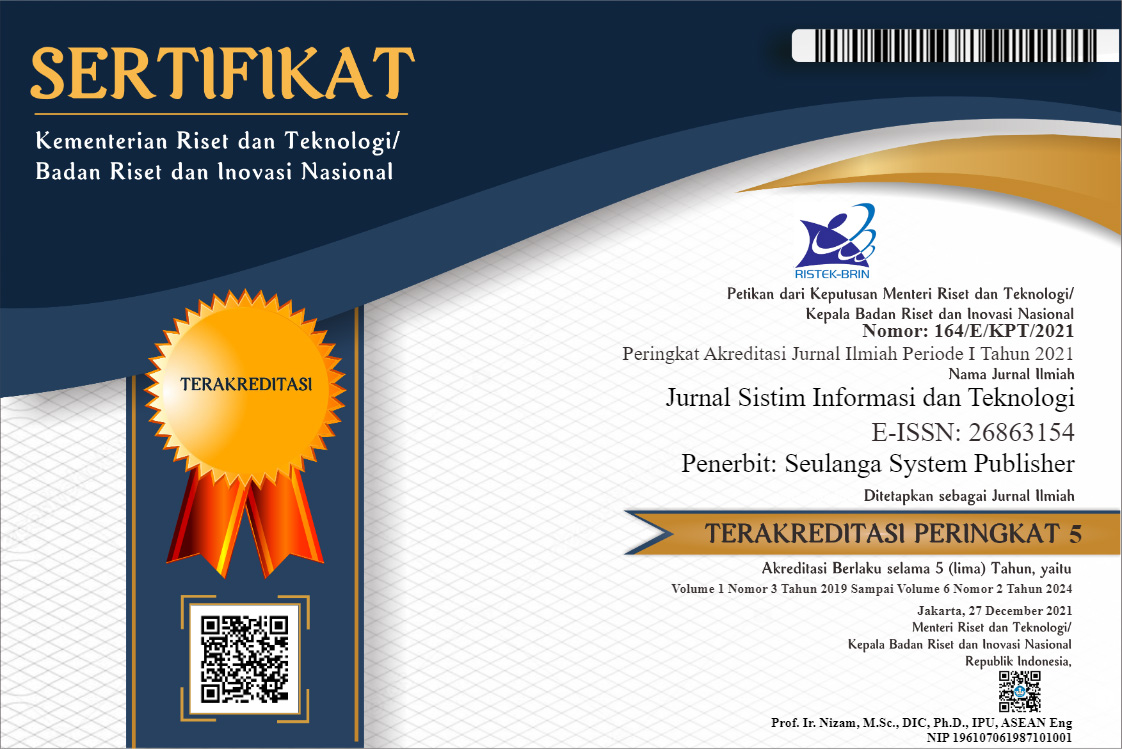Application of Digital Literature Analysis in Analyzing The Relationship Between Schools' Ability in Updating The Curriculum and Students' Readiness to Face Challenges in The Era of Digitalization
DOI:
https://doi.org/10.60083/jsisfotek.v6i2.345Keywords:
Pedagogical, Qualitative, Education, TeacherAbstract
This research aims to determine the conditions of educational and pedagogical reform. The methodology used is qualitative. Researchers used a qualitative approach, including historical source analysis instruments, content analysis, participant and non-participant observation, and interviews. The research reveals each center's uniqueness and educational identity, examining its internal organization, approach, relationship with the environment, participation models, and other aspects. This shows that there is room for various educational strategies and models that can improve the quality of learning. Daily educational activities reveal elements of traditional pedagogical culture, including textbooks as the primary work material, minimal parental participation, and classes dominated by conventional pedagogical relationship methods. On the other hand, these schools exhibit extraordinary dynamism and unlimited pluralism in their pedagogical reforms. The various networks, teacher collectives, and other initiatives reflect this, striving to renew and reaffirm the approaches of the new school movement while also demonstrating the collective crystallization of the claims that form the foundation of the critical subject. Finally, national and international reports have shown the importance of carefully reflecting on the pedagogical conclusions drawn in education. These conclusions can provide valuable insight into the direction and efforts that should be made to improve the education system as a whole.
References
Arina, Y. ., Yolanda, S. ., Revita, Y. ., Marsidin, S. ., & Rifma, R. (2024). The Effectiveness of the Implementation of Learning Supervision in Improving the Quality of Learning. Edunesia : Jurnal Ilmiah Pendidikan, 5(1), 14–26. https://doi.org/10.51276/edu.v5i1.613
Sarnoto, A. Z. (2024). Model Pembelajaran Berdiferensiasi dalam Kurikulum Merdeka. Journal on Education, 6(3), 15928-15939. https://doi.org/10.31004/joe.v6i3.5470
Suban, M., Oktavia, M., & Mole, P. (2024). A Analysis of Phase E Students’ Critical Thinking Abilities on Global Warming Material Assisted by E-LKPD Based on Live Worksheets. Journal on Education, 6(3), 15632-15642. https://doi.org/10.31004/joe.v6i3.5338
Denissa, M. J. ., & Dasalinda, D. . (2024). The Relationship between Emotional Maturity and Verbal Aggressive Behavior in State Vocational High School Students. Edunesia : Jurnal Ilmiah Pendidikan, 5(1), 27–39. https://doi.org/10.51276/edu.v5i1.578
Azizah, N., Kresnadi, H., & Pranata, R. (2024). Pengaruh Penerapan Model Pembelajaran Problem Based Learning (PBL) terhadap Hasil Belajar Siswa pada Mata Pelajaran IPAS di Kelas IV Sekolah Dasar Negeri 03 Pontianak Selatan. Journal on Education, 6(3), 15734-15739. https://doi.org/10.31004/joe.v6i3.4983
Oktiarina, V., Syarifudin, E., & Suherman, S. (2024). Analysis of Education Policy on the Implementation of Post-Covid-19 Distance Learning. Edunesia : Jurnal Ilmiah Pendidikan, 5(1), 40–55. https://doi.org/10.51276/edu.v5i1.515
Rukhmana, T., Mulyapradana, A., Endro Baruno, Y. H., Karsim, K., Franchitika, R., & Ikhlas, A. (2024). Pentingnya Pendidikan Karakter di Era Digital untuk Masa Depan. Journal on Education, 6(3), 15795-15800. https://doi.org/10.31004/joe.v6i3.5458
Amalia, F. ., Salahuddin, R. ., & Astutik, A. P. . (2024). Utilisation of Canva Application and Student Worksheet Digital-based Islamic learning. Edunesia : Jurnal Ilmiah Pendidikan, 5(1), 70–83. https://doi.org/10.51276/edu.v5i1.546
Kevin, Y., Chalimi, I., & Firmansyah, H. (2024). Analisis Strategi Guru Sejarah Dalam Menanamkan Karakter Nasionalisme Pada Peserta Didik Kelas XI IPS SMA Santo Fransiskus Asisi Pontianak. Journal on Education, 6(3), 15811-15822. https://doi.org/10.31004/joe.v6i3.5412
Susanti, A. ., Mawardi, M. ., & Suryani, O. . (2024). Development of TextBook to Support Merdeka Curriculum on the Atomic Structure of Phase E. Edunesia : Jurnal Ilmiah Pendidikan, 5(1), 101–115. https://doi.org/10.51276/edu.v5i1.626
Ihza, N., Irmawanty, I., & Hambali, H. (2024). Pengaruh Model Children Learning In Science (CLIS) terhadap Hasil Belajar IPA Siswa Kelas III UPT SPF SD Inpres Sambung Jawa 1 Kota Makassar. Journal on Education, 6(3), 15823-15831. https://doi.org/10.31004/joe.v6i3.5461
Wijayanti, N. H., & Hamami, T. . (2024). Implementation of Merdeka Curriculum Development for Islamic Religious Education: A Case Study in a Junior High School. Edunesia : Jurnal Ilmiah Pendidikan, 5(1), 129–142. https://doi.org/10.51276/edu.v5i1.593
Andryani, R., Iryanah, I., Firdaus, I., & Ilham Maliki, B. (2024). Efektivitas Pelatihan Dan Pengembangan Guru Dalam Mencapai Tujuan Pendidikan Yang Unggul. Journal on Education, 6(3), 15851- 15862. https://doi.org/10.31004/joe.v6i3.5148
Nolowala, E. B. U., Elizabeth, A., Agung, B. H., & Berthonaldi, E. (2024). Penerapan Model Pembelajaran Problem Based Learning dengan Konten Pembelajaran yang Kontekstual untuk Meningkatkan Keterampilan Berpikir Kritis dan Kreativitas Siswa pada Materi Fluida Statis. Journal on Education, 6(3), 15879-15893. https://doi.org/10.31004/joe.v6i3.5465
Landebila, J. ., Saputra, H. N. ., & Razilu, Z. . (2024). Moodle-Based E-learning Development by Implementing Gamification Concept. Edunesia : Jurnal Ilmiah Pendidikan, 5(1), 56–69. https://doi.org/10.51276/edu.v5i1.532
Downloads
Published
How to Cite
Issue
Section
License
Copyright (c) 2024 Jurnal Sistim Informasi dan Teknologi

This work is licensed under a Creative Commons Attribution 4.0 International License.









